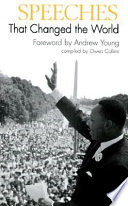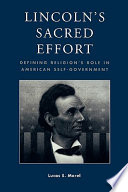 | Robert Walter Johannsen - 1973 - 1012 páginas
...Republican administration. He reduced the dispute between the north and south to its simplest expression: "One section of our country believes slavery is right,...believes it is wrong, and ought not to be extended." On the question of compromise, Lincoln recognized the authority of the people to amend the Constitution,... | |
 | Owen Collins - 1999 - 464 páginas
...decide cases properly brought before them, and it is no fault of theirs if others seek to turn their decisions to political purposes. One section of our...Constitution and the law for the suppression of the foreign slave trade are each as well enforced, perhaps, as any law can ever be in a community where the moral... | |
 | George Anastaplo - 2001 - 392 páginas
...Paragraph 25) called "the only substantial dispute" dividing the North and the South: "One section of the country believes slavery is right, and ought to be...the other believes it is wrong, and ought not to be extended."317 And, as I have indicated, many on both sides also believed that if slavery could not... | |
 | Jim F. Watts, Fred L. Israel - 2000 - 416 páginas
...decide cases properly brought before them, and it is no fault of theirs if others seek to turn their decisions to political purposes. One section of our...Constitution and the law for the suppression of the foreign slave trade are each as well enforced, perhaps, as any law can ever be in a community where the moral... | |
 | Harry V. Jaffa - 2004 - 574 páginas
...carried on if a constitutional majority could be denied the title deeds of office upon such a basis. [25] One section of our country believes slavery is right,...extended. This is the only substantial dispute. The fugitive slave clause of the Constitution, and the law for the suppression of the foreign slave trade,... | |
 | Diane Ravitch - 2000 - 662 páginas
...inadmissible; so that, rejecting the majority principle, anarchy or despotism in some form is all that is left One section of our country believes slavery is right...be extended. This is the only substantial dispute. . . . Physically speaking, we can not separate. We can not remove our respective sections from each... | |
 | David A. Nichols - 1978 - 236 páginas
...Lincoln that so disturbed white Southerners, "One section of our country believes slavery is r1ght, and ought to be extended, while the other believes it is wrong, and ought not to be extended." Lincoln's other public declarations were not conciliatory. His theory of the Union did not allow secession... | |
 | Lucas E. Morel - 2000 - 272 páginas
...itself." There Lincoln cites opposing constitutional issues dealing with slavery — "the fugitive slave clause of the Constitution, and the law for the suppression of the foreign slave trade" — to make a connection between the moral sense of the community and the words of the... | |
 | John Albert Murley, John Alvis - 2002 - 310 páginas
...his "First Inaugural Address," the real issue dividing South and the North was: "One section of the country believes slavery is right, and ought to be...believes it is wrong and ought not to be extended." The Collected Works of Abraham Lincoln, 2:268-69. 84. Jaffa, How to Think About the American Revolution,... | |
 | Don Erler - 2002 - 216 páginas
...War was fundamentally about a single issue. As he said in his First Inaugural, "One section of the country believes slavery is right, and ought to be...while the other believes it is wrong, and ought not be extended." Lincoln wrote that if "slavery is not wrong, nothing is wrong. I can not remember when... | |
| |